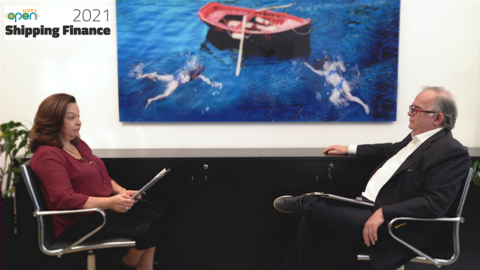Shipping: change management, optimism and ‘guts’
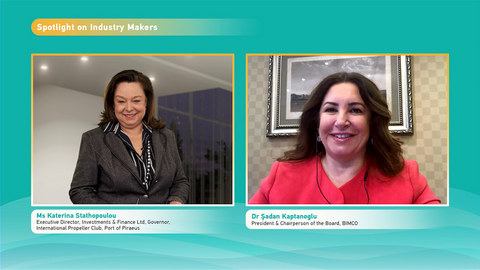
Slide2Open Shipping Finance 2021 Conference, This is the main concluding remark of the three-day conference, Slide2Open Shipping Finance 2021 which has been successfully completed
So we beat on
Slide2Open Communications, true to its annual appointment with the Shipping world, organized the 4th Slide2Open Shipping Finance 2021 Conference, from Tuesday 16 to Thursday 18 March 2021. A phygital interactive conference show, Slide2Open Shipping Finance 2021 was held in an impressive 3D virtual venue, in Athens and around the world, with physically present and remotely connected speakers, with interviews, panels and happenings. The live broadcast of the conference was attended by 4,000 “unique participants” from 72 different countries.
So we beat on. This year we are called to face a global threat. We are called to protect our industry, our people and, let’s face it, our lives! But we stood strong and we progress. We discovered new ways of working, commuting and interacting. Phygital became our new reality and IT reached new heights.
In this environment, Shipping, once again, proved its timeless value. It continues its operation and moves the world economy under extremely adverse conditions.
How have we coped and how do we plan our next steps?
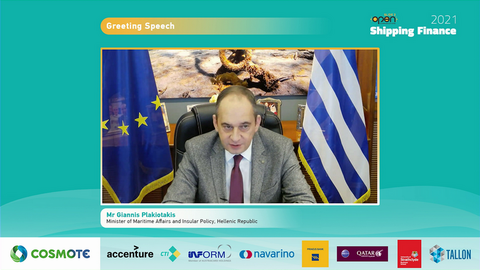
In his opening speech, the Minister of Maritime Affairs and Insular Policy, Mr Giannis Plakiotakis , discussed the role of shipping for EU and national economies and recognized that the pandemic has revealed weaknesses of the governance systems and drawbacks in policies. Certain sectors of the Blue Economy have proven strong and crucial during the pandemic crisis: sea transport and port transportations never ceased, which was beneficial for the smooth operation of the supply chain. The Ministerial Declaration on Blue Economy acknowledges the future priorities and puts emphasis on the common interests for all Mediterranean countries. In our country, the new national strategy is based on the triangle of maritime economy, insularity and sustainable blue growth. To this end, in collaboration with other ministries and bodies, three new financial instruments are introduced.
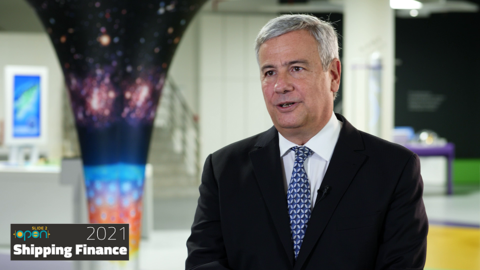
The IMO Ambassador in Greece and President of Eugenides Foundation, Mr Leonidas Dimitriadis-Evgenidis stressed that core values, adaptability, technology and the human factor, all worked together to assist shipping go through last year’s rough waters, though the failure to repatriate crews has been a very negative development. Shipping is adaptive, versatile and manages to move the world. The human factor and technologies help shipping go further. Dialogue with the stakeholders is essential, together with proper impact studies, in order to avoid mistakes of the past. Greece will always be one of the frontrunners in shipping.
Dr Sadan Kaptanoglu, President & Chairperson of the Board of BIMCO, in her interview to the Executive Director of Investments & Finance Ltd and Governor of the International Propeller Club, Port of Piraeus, Ms Katerina Stathopoulou, said that the pandemic has changed our lives, but shipping proved that “without us, the world stops” – but it did not stop. Crew changes and the repatriation of seafarers were the largest challenge. BIMCO reacted immediately, producing a covid-19 clause for crew changes. Decarbonization is the new great challenge and the timeline is short and demanding. Dr Kaptanoglu also discussed about piracy, an unacceptable practice in the 21st century, which cannot be fought without collaboration. Finally, she introduced the audience to a short film on shipping sponsored by BIMCO, “Ships make the world go”, currently available on youtube.
Mr Nicholas Papalios of Vantage Shipping Lines in his interview to the Conference Chair Mr Angelos Roupas Pantaleon, founder of Second Wind & Partners, explained that small and medium sized shipping enterprises benefit of swift decision making, personal involvement of the shipowner and flexibility. Mr Papalios proudly stressed that, after 5 generations of shipowners, his principles remain the same as those of his great great grandfather. Quick decision making, being obsessed with micromanagement, being a prudent negotiator, always be in command and not let problems grow. This is the base. Technology, new regulations cannot change the foundations of shipping.
Dr Konstantinos Galanis, Director of Dido Shipping Co. and Chairman of International Ship Recycling Association, Dr Iraklis Lazakis, Reader, Naval Architecture, Ocean and Marine Engineering (NAOME) at the University of Strathclyde and Mr Spyridon Tarasis, General Manager at Olympic Vision Maritime and Vice Chairman of INTERCARGO answered the questions of Dr George Vaggelas, Associate Professor at the Department of Shipping, Trade and Transport of the University of the Aegean and explained that shipping needs people that are flexible and effective, that education institutions offer rather theoretical knowledge and that technology is a tool that needs to be used effectively. People working in shipping have to have practical experience and knowledge, be good negotiators and be in a position to enhance team spirit. Education institutions have to be close to the industry, in order to answer to its needs. In any case, the most important asset of shipping is its people and it is necessary for them to have hands-on practical training.

Ms Katerina Stahopoulou discussed with Mr Nicolaos Frangistas, Chief Executive Officerof Franco Compania Naviera, Mr Michail Kokkinis, Founder and Managing Director of Golden Destiny Group, Mr Georgios Makrymichalos, President of Empros Lines Shipping and Mr John Platsidakis, Honorary Chairman of INTERCARGO. Shipping went through many crises during the past century and some of them were opportunities for growth. There have been changes in financing, with the withdrawal of banks from shipping finance, globalization and the entry of China, which have triggered changes. Capital markets also changed, but shipping culture, “guts” and adaptability are the key elements that kept Greek shipping strong.
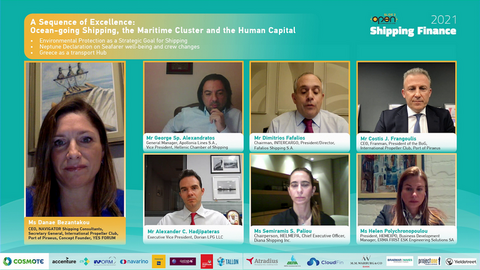
Ms Danae Bezantakou, CEO at Navigator Shipping Consultants and Secretary General of International Propeller Club, Port of Piraeus discussed with Mr George Alexandratos, General Manager at Apollonia Lines and Vice President of the Hellenic Chamber of Shipping, Mr Dimitri Fafalios, Chairman of INTERCARGO and President & Director of Fafalios Shipping, Mr Costis Frangoulis, CEO at Franman, Mr Alexandros C. Hadjipateras, Executive Vice President at Dorian LPG LLC, Ms Semiramis Paliou, Chairperson at HELMEPA and Chief Executive Officer at Diana Shippingand Ms Eleni Polychronopoulou, President of HEMEXPO and Business Development Manager at Erma First ESK Engineering Solutions, on fleet renewal, in collaboration with the EU and the European Investment Bank, and placed emphasis on the significance of working together. The creation and success of a shipping cluster depends on synergies among stakeholders. The pandemics had an impact on freights, but shipping knows how to handle change. Crew changes was the major challenge last year, which has to be resolved on a very high political level. Today some 750 companies have already signed the Poseidon Declaration. The panelists noted the importance of education and discussed on the use of internationally competitive marine equipment currently produced in Greece with the use of cutting edge technology and repeated that they feel optimistic about the future.
During the second day of the Conference, The President of Inmarsat Maritime, Mr Ronald Spithout, in his keynote speech noted that the most important asset is the crew. Technology can help in the mental, physical and social wellbeing of this vital asset, especially if it is personalized. The pandemic brought ICT at the heart of the shipping business, while digitization is spreading in shipping. Other issues include safety, security, smart use of technology, uniformity of communication platforms.
Ms Katerina Raptaki, Digital Transformation, Cyber Security and e-Governance specialist at Navios Group of Companies and Member of the Board of Directors of A.M.M.I.T.E.C. discussed with Ms Eftychia Benaki, IT Manager at Minerva Marine, Mr George Bonikos, IT Consultant, Mr Juan Manuel Puertas, IT Manager at Compania Naviera Horamar, Mr Rohald Spithout and Dr Anna Vazintari, ICT Manager at Unisea Shippingon “How Maritime ICT responds to contemporary challenges”.
The panelists agreed that most shipping companies were quite ready for the challenge and if the pandemic had occurred 15 years ago, it would have been a real disaster. Nowadays, important works are being done remotely (inspections, problem solving) and machines will not take the place of humans – just undertake some tasks. The panelists agreed that ICT departments have come to the epicenter of operations and strategic growth of shipping companies.
Mr Angelos Roupas Pantaleon together with Mr Evan Cohen, Managing Director & Group Head of Maritime Finance at CIT Bank, Mr Christian L. Speer, Director and Head of International Shipping at M.M. Warburg & Co. and Mrs Eleni Vrettou, Executive General Manager, Corporate & Investment Banking at Piraeus Bank,discussed on “Should I stay of should I go? – A shipping banker’s dilemma”. We live in a different world, new regulations may pose obstacles and delays, they may even take out the joy of the profession, but today’s world is more secure. Countercyclical lending is always a tough issue, personal relationships are still important, but not as much as balance sheets. As for new comers in the profession, there are talented candidates that may enter and, in time, acquire the necessary experience.
Mr Vassilios Th. Terzis, Managing Director at Queensway Navigation Co. in his interview to Mr Konstantinos Ioannou, Member of to Board of Directors of the Association of Banking & Finance Executives of Hellenic Shipping and Shipping SAU at National Bank of Greece,noted that Greek banks invest in Greek shipping, but mainly in large corporations – it is rather difficult for small and medium shipping firms to have access to bank loans. Investment funds do not pay much attention to small companies, as they find more security in larger ones. Small, family-run shipping enterprises need specialized loans and banks should consider it a risk worth taking.

Mr Angelos Roupas Pantaleon discussed with Mr Ioannis Dragnis, Chief Executive Officer at Goldenport Group, Mr George Goudomichalis, Managing Director at Phoenix Shipping & Trading, Mr George Mangos, Principal at Interunity Group and Mr Vasilis Papagiannopoulos, Director at Common Progress Co. Na Ltdabout “Breaking the mould – perpetuating the legacy”. The basics of shipping remain unchanged: quick decision making, often with insufficient information, clear leadership, knowledge of the job, flexibility, adaptability, resilience and passion. Shipping firms have the social responsibility to maintain ships safe and comply with regulations. Quality is more important than size: in the operations and technical departments, what is important is how good is one at his job; but when it comes to financing, size maters. The panelists stressed how important a factor time is, discussed the non-synchronous evolution of market segments and agreed that shipping requires guts, good partners and strong relationships.

During the third day of the conference Mr Esben Poulsson, ICS Chair and Executive Chairman of ENESEL PTE. Ltd, in his interview to Ms Gina Panagiotou, Founder of Oceans Arena & It’s all about Shipping, noted that shipping is a key sector, as it undertakes the transfer of 90% of the volume of world trade. He stressed the large issue that has arisen with crew changes and he explained that institutional actions are needed internationally. Turning to the future of shipping, apart from the purely shipping activity, the technological and environmental performance of shipping enterprises constitute important parameters.

Ms Katerina Stathopoulou discussed with Mr Christopher Conway, Managing Director, Global Head of Shipping and Offshore Export & Agency Finance at Citi, Mr Andreas Chrysostomou, Chief Executive Officer at Marine Fields, Mr Stavros Gyftakis, Chief Financial Officer at Seanergy Maritime Holdings Corp., Mr Marc Hari, Executive Director, Shipping Finance & ECA at Macquarie Bank, Ms Alexandra Michalopoulos, Partner at Watson, Farley & Williams, Ms Korinna Tapaktsoglou, Chief Financial Officer at Pioneer Marine and Mr Christos Tsakonas, Global Head of Shipping at DNB Bankon the changes brought to shipping by the new regulatory framework. Is the Shipping Industry being Reshaped by new Environmental, Funding and Governance Requirements? was the title of the panel and the panelists noted that, in many cases, shipping companies adapted swiftly, but the regulatory framework keeps on changing. Compliance to new regulations becomes more and more important when it comes to financing, as lenders want to know the environmental performance of the ship, given that it affects its market price. Also charterers want to charter vessels that meet requirements. Panelists place importance on communication, noted the significance of the human factor, discussed about transparency and collaboration among stakeholders and agreed that AIS should be regulated by the flag.
Mr Angelos Roupas Pantaleon asked Mr Stefanos Frangos, Senior Representative at YieldStreet Marine Inc. Athens Branch, Mr Martin Hugger, Managing Director at Meerbaum Capital Solutions Inc. and Mr Vasilis Theophanopoulos, Senior Director, Head of Credit (Greece & Cyprus) at Mount Street Group,if over regulation in banks can be seen as a “gift” to alternative forms of shipping financing. The panelists agreed that over regulation has created a void, where new “players” can enter. Alternative forms of financing are more flexible and do not reject small customers. Panelists did not agree on whether a good name is enough to secure credit, but they agreed that the character of the customer and the quality of the ship are important. Counter cyclical lending is not a major issue, since this is the majority of the cases. Diversification is important and competition in the sector creates a healthy environment.
Ms Elisabeth Calbari, neuropsychologist, Executive Trainer and Founder of Self-Balance discussed with Mr Tilemachos Poulis, HR & ICT Manager at Prime Tanker & Gas Management Inc., Mr Matt Raos, Senior Vice President – Global Sales at Qatar Airwaysand Ms Maria Rapti, HR Manager at Euronav Ship Management on how shipping companies can build up human skills that assist shore and sea personnel work together for the common safety of people and trade. A characteristic feature of shipping is diversity: different nationalities, different religions, different values; they all require proper and open communication. Mr Raos stressed out that operations rely on the crews in both airlines and shipping companies. 2020 was a learning point and helped undersand the needs of seafarers. It is important for all players to talk together.
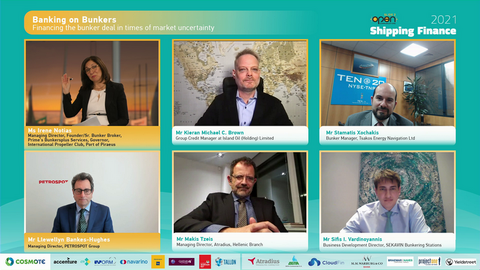
“Banking on bunkers” was the title of the panel discussion of panel moderators Ms Irene Notias, Managing Director, Founder/Sr. Bunker Broker of Prime’s Bunkerplus Servicesand Mr Llewellyn Bankes-Hughes, Managing Director of Petrospot Group with panelists Mr Kieran Michael Brown, Group Credit Manager at Island Oil (Holding) Limited, Mr Makis Tzeis, Managing Director at Atradius, Hellenic Branch, Mr Sifis Vardinoyannis, Business Development Director at Sekavin Bunkering Stationsand Mr Stamatis Xochakis, Bunker Buyer and Operator at Tsakos Columbia Shipmanagement Ltd. Bunkering may seem simple, but it is a very complicated procedure and requires multiple information and right timing. For credit insurers, the fact that it is a difficult sector does not mean that it should be “demonized”. It is important to know that prices differ, as they can change by the minute. Reliability, transparency and trust are important. A good understanding of each one’s position is necessary for everyone and allows for better decision making.
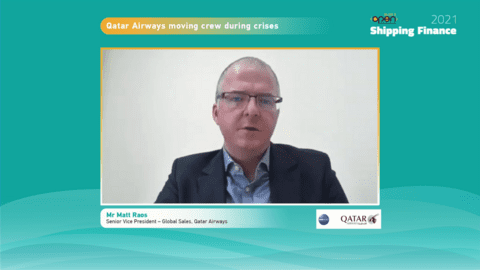
In his interview to Ms Katerina Stathopoulou, Mr Petros Pappas, CEO and Director of the BoD at Star Bulk explained how important fundamentals are, demand and supply, and discussed the new IMO regulations. He explained that, since we do not yet know which the fuel of the future will be, it is not wise to move to new orders. Turning to financing, he noted that banks prefer to supply loans to large companies, preferably with a corporate structure, while leasing is more open to small enterprises and funds offer alternative solutions, they are open to small businesses and willing to undertake larger risk, at a higher cost.
